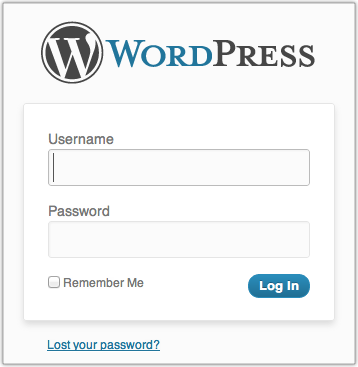Tips To Secure WordPress Login Page
WordPress runs on PHP and MySQL and is a flexible content management system. It is search engine friendly and easy to use and manage. WordPress can be used as a blog, content management system, gallery, portfolio, shopping store. With multiple themes and plug-ins, a user can create a blog, fully functional website and mobile application within it. However, if you have a WordPress website, and yet not thought about its security, then the right time is knocking your door. As hackers always target WordPress due to its wide usability, it is wise to look after your WordPress security aspect. In this article, we will go through some tips that can secure admin area of WordPress.

Strong Password
It is wise to have a strong password for your WordPress admin area. Make your password with a combination of alphabets, special characters, and numerical figures which would be tough for hackers to guess password. There is a password strength detector which will help you to make your password strong. Apart from this, you should change password frequently (at least after 15 days) so if incase anyone has your password in mind; it will be useless for them to access your WordPress admin panel. There are many password generator tools available in the market that will also help you to generate a robust password. If you often forget the password, then you should use password managers that will help to save and remember your passwords.
Hide Login Page
There is plug-in (Stealth Login) available that will create a custom URL for the log-in functions. If you have used the same password on multiple sites, then hackers can easily gauge about the password and hack the site. When you create a custom URL link, it will make difficult to access “wp-login.php” (default login URL). There is another plug-in named “Better WP Security” that hides important part of WordPress site and prevents brute force login attempts as a result, you can prevent important files from being accessed by a third party. Other Plug-ins are WPS Hide Login and Protect Your Admin that protects the login page in a similar way.
SSL Security
SSL secures the information travelling between the server and the browser. It encrypts the information so a third party can not intercept it. Website Admin should have to install SSL certificate on WordPress for its login page so that users’ information will remain safe. The website owner should take an SSL certificate from most trusted certificate authorities. If you are a new to SSL concept, then there are many SSL authorities who offer free SSL certificate for a limited period which you can upgrade after the term expiry.
Limit Login Attempts
To stop brute force attack, website owner should limit login attempts because this attack requires to try multiple login attempts. There are few plug-in like Login LockDown, Login Security Solution can work best for your login page security. Such plug-in track the IP address to block excessive login page. It sends a notification along with the IP address to you if someone tries to access the login page multiple times.
Use Updated Version
Many users use an older version of WordPress and usually do not update once the update is released. It openly welcomes hackers to hack your website. Generally, updated version comes with fixing bugs and vulnerabilities so it will directly benefit to your admin page. Besides, login page, you should have to update plug-in and themes to the latest version. If you keep all state-of-the-art, your site has less chances of getting hacked.
Two Factor Authentication
As you may know that many social media sites have enabled two-factor authentication that lessen the chances of disclose of username and password. You can enable two factor authentication on your WordPress site with plug-ins like Google Authentication, Clef Two-Factor Authentication, Rublon Account Security.
Never Use Admin as Username
Many people keep “Admin” name as a username while accessing login page. When you several time access the login page with “Admin” username and if your password is weak then your WordPress security may be at risk. Hackers can easily determine frequent login attempts and damage your site. Before the release of the WordPress 3.0 version, it automatically creates Admin as the username, but after that, website owner can choose his own username.
At the End:
WordPress security even becomes a concern for many security experts, as hackers are using many sophisticated techniques every day to take advantage of outdated plug-in and themes. To keep your website safe, there are Firewall plug-in and Antivirus plug-in available that detects suspicious activities and protects your web site against exploits and spamming. The above tips can secure your WordPress admin page and keep away the hands of hackers from your web site.


